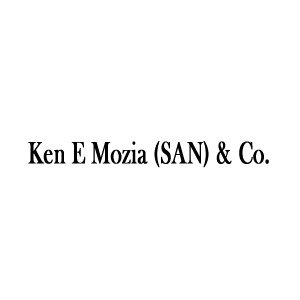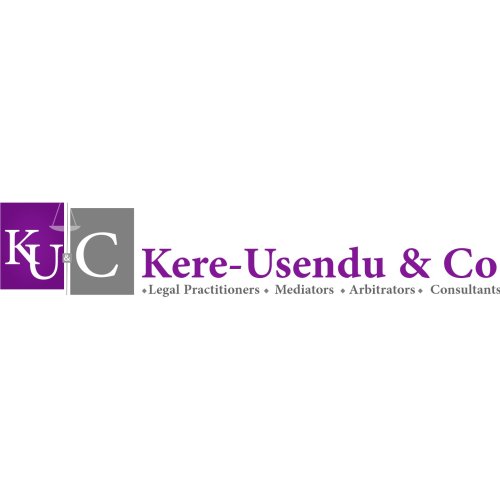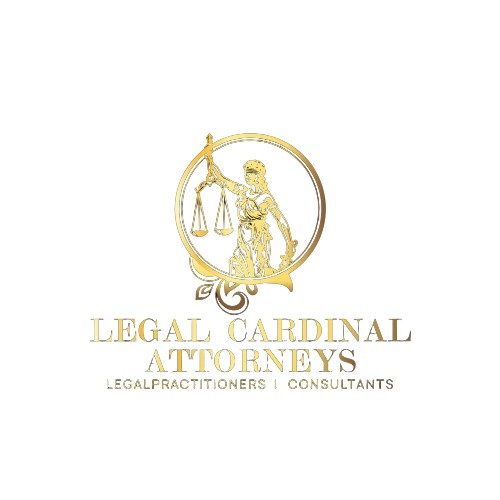Best New Business Formation Lawyers in Nigeria
Share your needs with us, get contacted by law firms.
Free. Takes 2 min.
Or refine your search by selecting a city:
List of the best lawyers in Nigeria
Legal guides written by Adeola Oyinlade & Co:
- Procedure and Requirements for Work Permit and Visas in Nigeria
- The Step-By-Step Procedure of How to Apply for Microfinance Bank License Online in Nigeria
- How to Ensure the Smooth Recognition and Enforcement of Foreign Judgments in Nigeria
Nigeria New Business Formation Legal Questions answered by Lawyers
Browse our 2 legal questions about New Business Formation in Nigeria and read the lawyer answers, or ask your own questions for free.
- Timeline, Requirements, and Costs for Company Registration with the CAC
- How long will it take to get my company registered with the CAC, and what are the necessary requirements and costs?
-
Lawyer answer by GAVEL & GREY LEGAL PRACTITIONERS
The duration takes between 7-28 days. And as for requirement, it varies depending on the type of company you seek to register. the fees is usually determined by the share capital you seek to register your company with. for more...
Read full answer - I want to start upa disatch rider company i. Enugu. Courier a d logistics. Company
- What are the necessary law requirement and licensing to set up a dispatch rider business within Rnugu State
-
Lawyer answer by Highlaw Chambers
To establish a dispatch rider business in Enugu State, several key legal requirements must be met. Firstly, you need to register your business with the Corporate Affairs Commission (CAC) and obtain a Business Name Registration. Additionally, you will need to...
Read full answer
About New Business Formation Law in Nigeria
New Business Formation in Nigeria involves the legal and administrative processes of setting up a new business entity, typically following the regulations set by the Corporate Affairs Commission (CAC). There are different types of business structures one can establish in Nigeria, such as sole proprietorships, partnerships, private limited companies, public limited companies, and incorporated trustees. Each type comes with specific regulations, advantages, and obligations. Understanding these intricacies is crucial to ensure compliance and to choose the most suitable structure for your business needs.
Why You May Need a Lawyer
There are several scenarios in which seeking legal advice becomes essential in the formation of a new business in Nigeria. Firstly, selecting the appropriate legal structure for your business can be complex due to varying tax implications, liability issues, and operational requirements. A lawyer can provide insights into each business type's advantages and disadvantages. Furthermore, professionally drafted legal documents such as partnership agreements, memorandums, and articles of association are crucial and require legal expertise to ensure they are airtight and compliant with Nigerian laws. Additionally, handling the nuances of intellectual property rights, compliance with industry regulations, and understanding the full ramifications of local labor laws often necessitate legal guidance.
Local Laws Overview
The key legislation governing business formation in Nigeria is the Companies and Allied Matters Act (CAMA), which is managed by the Corporate Affairs Commission (CAC). Under CAMA, businesses must be registered with the CAC, and specific documentation is necessary depending on the business type. This includes the submission of company names, directors’ details, and registered addresses. It is also mandatory that companies maintain proper business records and conduct annual returns. Additionally, businesses may need to get sector-specific licenses and permits. Intellectual property rights are governed by the Nigerian Copyright Commission and the Federal Ministry of Industry, Trade, and Investment, which should be considered to protect business ideas and innovations.
Frequently Asked Questions
1. What is the first step in starting a business in Nigeria?
The first step is usually deciding on the business structure and then proceeding to register the business name with the Corporate Affairs Commission (CAC).
2. Do I need to register my sole proprietorship business?
Yes, all businesses, including sole proprietorships, are required to register with the CAC to operate legally and gain recognition.
3. How long does the registration process take?
The time frame can vary, but typically, the business registration process may take between 1 to 3 weeks if all requirements are met.
4. Can foreign nationals start businesses in Nigeria?
Yes, foreign nationals can start businesses in Nigeria, but they must fulfill certain requirements, including obtaining the necessary immigration visas and permits and registering with the CAC.
5. What is the minimum share capital for a private limited company in Nigeria?
The minimum share capital for a private limited company in Nigeria is N100,000, although this may vary depending on the industry.
6. Are there incentives for startups in Nigeria?
Yes, the Nigerian government offers several incentives, including tax exemptions and reduced rates for certain industries and business types, to encourage entrepreneurship and investment.
7. What taxes must a new business pay?
Businesses may be liable to pay various taxes such as Company Income Tax, Value Added Tax, and Withholding Tax, among others, depending on the business structure and sector.
8. Is it compulsory to have a company secretary?
Yes, having a company secretary is mandatory for public companies, and it's good practice for private companies as well although not mandatory.
9. How can I protect my business trademark in Nigeria?
Trademarks can be protected by registering them with the Trademarks, Patents and Designs Registry under the Federal Ministry of Industry, Trade, and Investment.
10. What happens if I fail to comply with registration requirements?
Failure to comply with registration requirements can result in fines, penalties, or in severe cases, the closure of the business by regulatory authorities.
Additional Resources
Several resources can provide assistance with new business formation in Nigeria. Notable among them are:
- Corporate Affairs Commission (CAC) - Handles business registration and compliance.
- Nigerian Investment Promotion Commission (NIPC) - Provides guidance on incentives and regulations for foreign investors.
- Small and Medium Enterprises Development Agency (SMEDAN) - Offers support and resources for small and medium enterprises.
- Nigerian Bar Association - Can help find a lawyer with expertise in business law.
Next Steps
If you require legal assistance in new business formation, consider reaching out to a qualified business lawyer who can provide specific legal advice tailored to your needs. Prepare relevant documents, outline your business goals, and consult with multiple professionals if necessary to understand the diverse perspectives. Engaging with a professional early can help you avoid pitfalls and legal challenges down the road. Additionally, utilize available resources for a more comprehensive approach towards establishing your business.
Lawzana helps you find the best lawyers and law firms in Nigeria through a curated and pre-screened list of qualified legal professionals. Our platform offers rankings and detailed profiles of attorneys and law firms, allowing you to compare based on practice areas, including New Business Formation, experience, and client feedback.
Each profile includes a description of the firm's areas of practice, client reviews, team members and partners, year of establishment, spoken languages, office locations, contact information, social media presence, and any published articles or resources. Most firms on our platform speak English and are experienced in both local and international legal matters.
Get a quote from top-rated law firms in Nigeria — quickly, securely, and without unnecessary hassle.
Disclaimer:
The information provided on this page is for general informational purposes only and does not constitute legal advice. While we strive to ensure the accuracy and relevance of the content, legal information may change over time, and interpretations of the law can vary. You should always consult with a qualified legal professional for advice specific to your situation.
We disclaim all liability for actions taken or not taken based on the content of this page. If you believe any information is incorrect or outdated, please contact us, and we will review and update it where appropriate.
Browse new business formation law firms by city in Nigeria
Refine your search by selecting a city.

















